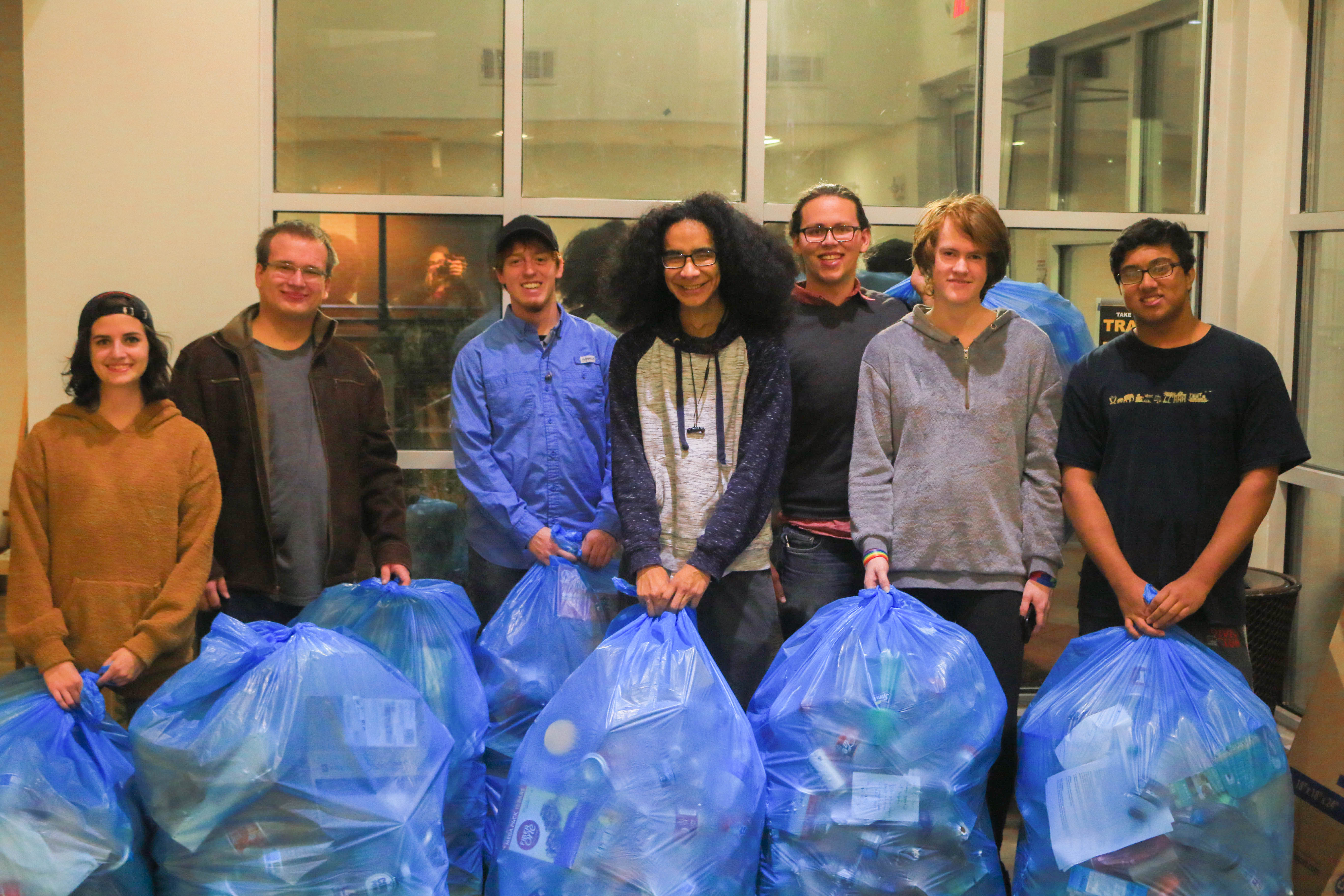In the midst of an intense political climate, the art of theater can provide citizens with a much needed emotional release and encourage them to appreciate life’s small pleasures.
Members of Kennesaw State’s Department of Theatre and Performance Studies graced the Stillwell Theater stage on the Kennesaw campus, from Nov. 6 to Nov. 11, during their performance of “Our Town.”
“Our Town,” a play by Thornton Wilder, is a work that has been around for nearly a century, and according to Co-director and Senior TPS Lecturer Margaret Baldwin, the play was chosen by KSU TPS because its message is relevant to the current divisive state of American politics and media.
The play’s entire ensemble felt that this was an effective time to focus attention on what connects humanity as opposed to focusing on the issues that divide people. The cast said that they felt “Our Town” does this by focusing on the symbiotic relationships between members of a small town.
“Stop to smell the roses and savor every moment,” actress Shannon Murphy said. “The small ones are just as important as the large.”
A character known as the Stage Manager interacted with both the characters onstage and the audience by serving as a narrator and setting up the layout of the town as it’s meant to be visualized. The Stage Manager is responsible for ensuring that the morals and themes of the play are recognized.
Regardless of their good intentions, members of KSU TPS had to overcome the challenges of double casting. The actors were divided into the two previously mentioned casts, Moonlight and Heliotrope — named for important images within the script.
Each actor had one role in the Moonlight cast and a different role in the Heliotrope cast. Each person had a large role in one cast and a smaller role in the other, with the groups switching from night-to-night.
The entire cast pointed out that while being double-casted did allow them to take breaks during performance week and it allowed actors the unique perspective of being able to learn from another actor in the same role, the double casting also created obstacles. In addition to having two separate roles to learn, each actor also had to learn their cues twice.
Practice time was essentially cut in half because two separate casts needed to practice, and there were difficulties involved with finding a wardrobe to fit each role — twice. Beyond this, the cast had to become comfortable rehearsing scene-by-scene instead of chronologically.
“There were difficulties and hurdles to get over, but they were usually outweighed by a sense of community and these magic moments of seeing the town come to life,” actress Brandy Bell said.
The end result was a performance that illustrated a lifetime in the town of Grover’s Corners by following the Gibbs and Webb families through youth, marriage and eventually death. As in life, the townspeople enjoy soaring highs and suffer devastating lows.
“[The] set beautifully abstracts and illustrates the idea of the small simple town,” student attendee Dylan Carter said. “There isn’t much there, but what is there is deeply important to the citizens.”


